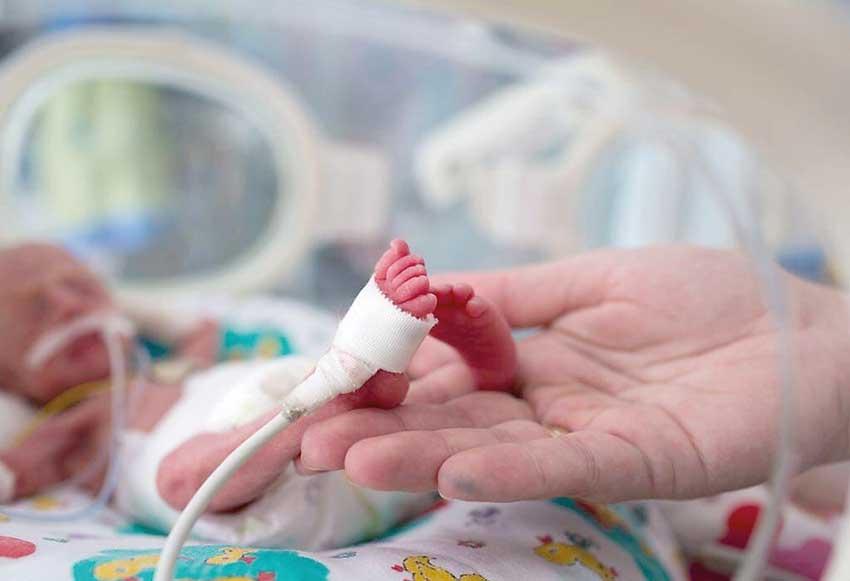19 Nov 2021 - {{hitsCtrl.values.hits}}

 “Every 1 in 10th baby is born too soon. A pregnancy usually lasts for 37 weeks. Any baby born before that is born too soon. When babies are born too soon, they are born before they reach maturity, hence the term premature.
“Every 1 in 10th baby is born too soon. A pregnancy usually lasts for 37 weeks. Any baby born before that is born too soon. When babies are born too soon, they are born before they reach maturity, hence the term premature.
Babies are born as young as 23-weeks-gestation (6 months) and as light as 500g. The smallest and most immature babies face the greatest challenges and find it hardest to survive” says Dr Nishani Lucas MBBS, MD, DCH, MRCPCH, IBCLC, Consultant Neonatologist, University Unit, De Soysa Hospital for Women, Colombo, Senior Lecturer, Department of Paediatrics, University of Colombo and Internationally Board Certified Lactation Consultant.
The place for specialised care
Babies born less than 32 weeks (8 months) require specialized neonatal care, often in an intensive care setting. Immature lungs which need support to breathe through continuous positive airway pressure (CPAP) or ventilator machines is the commonest problem faced by premature babies. They are also at risk of bleeding inside their brains due to fragile blood vessels. They are very small and thereby are very prone to get cold needing to be nursed inside an incubator which can regulate the heat and provide a humidified environment to minimize the heat loss. They are protected from excessive light and sound, noxious smell and taste and positioned inside a nest to simulate the intrauterine environment.
According to doctor, they have less immunity as well as a high requirement for nutrients as they miss out on the antibody and nutrient transfer across the placenta that happen after 28 weeks (7 months) gestation, especially if born before that. Therefore, it is very important to provide them with their mother’s own breast milk which contains all the nutrients necessary for their growth as well as all immune factors necessary for protection against disease including infection, allergy, cancer and non-communicable disease like obesity, hypertension, and diabetes in addition to intravenous amino acids, lipids and carbohydrates provided through parenteral nutrition.
“Breast milk increases the white matter volume, structure as well as myelination in the premature brain and protects against the deadly against the necrotizing enterocolitis which is a deadly intestinal disease seen in babies born too soon.” highlights Dr Lucas.
Although the mother herself may be fighting against disease after premature birth providing breast milk is crucial for the babies’ intact survival, even in the case of multiple pregnancy. Every mother has the capacity to produce enough milk for her babies provided she required the necessary skilled support. Not providing them own mother’s breastmilk will reduce their chances of survival as well as reduce their brain growth.
Other possible consequences
“Babies who are born too soon especially before 32 weeks are also at high risk of eye disease (retinopathy of prematurity), bone disease (osteopenia of prematurity) , anemia of prematurity, hypoxic injury to the brain (periventricular leukomalacia) and delays in neurodevelopment, monitored for these conditions and provided the necessary support with regular clinic follow up for at least till 2 years of age in a tertiary care hospital in addition to the care received by the medical officer of health (MOH) at the field level” explains Dr Lucas..
Challenge
Parents of premature babies may find it challenging to deal with fact of having a preterm baby and often needs psychological support. Parents play a very important role in these babies’ survival until these babies successfully graduate from the neonatal intensive care unit, a journey which is very challenging while facing the uncertainty of survival at every step of the way.
“Visiting the baby every day, talking to the baby, touching the baby, providing kangaroo mother care and breastmilk play a vital role in intact survival” Dr Lucas concludes.
28 Apr 2024 7 hours ago
28 Apr 2024 8 hours ago
28 Apr 2024 9 hours ago
28 Apr 2024 9 hours ago
28 Apr 2024 28 Apr 2024